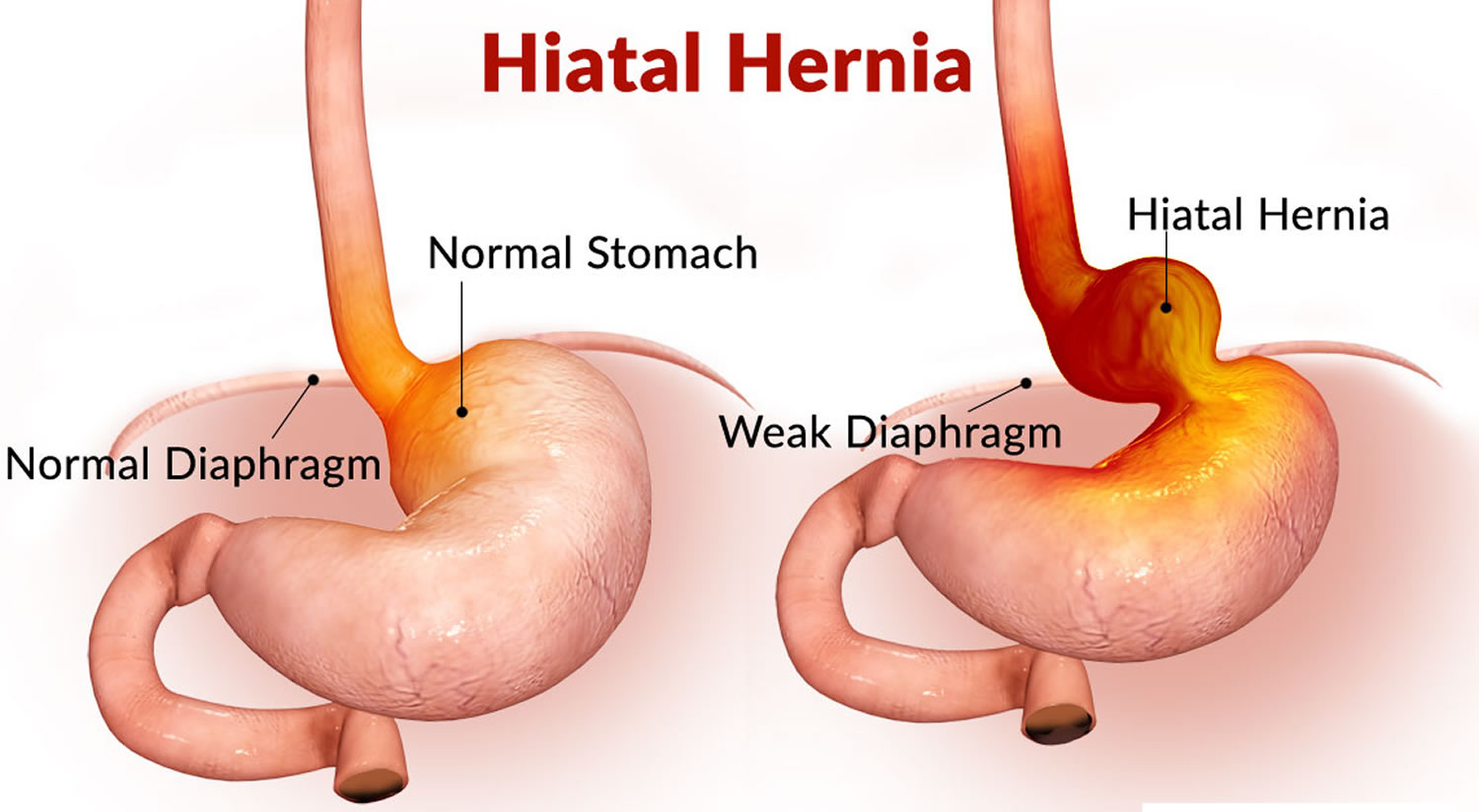

People, mostly those over 50 years of age, often complain of heartburn, a sour or bitter taste and frequent instances of hiccuping. Are you one of them? If so, you may be suffering from Hiatal Hernia, a condition where the upper portion of the stomach bulges out through the diaphragm. The opening from which the stomach pushes out is called hiatus.
Normally, that aperture allows the food tube or the oesophagus to pass before it joins the stomach. In the case of a stomach hernia, it pushes the stomach through it and causes complications for people of both sexes. The risk heightens in obese people and smokers. You may or may not be any of them, yet it’s better to know A-Z about this condition to tackle recurrent heartburns, acid reflux and other discomforts. Read on to find out more about it.
Most of the time, you will never know that you are suffering from hiatal hernia unless, of course, you feel the following:
• Fullness short after eating something
• Heartburn
• Shortness of breath
• Regurgitation of liquids or food into the mouth
• Chest or abdominal pain
• Black stool
• Swallowing difficulty
• Bloating and belching
• Bad breath
It’s hard to tell about what spawns Hiatal hernia, but it’s usually caused by:
• Changes in diaphragm due to age
• An unusually large hiatus since birth
• Injuries or trauma after surgery
• Intense pressure on muscles around due to persistent coughing, lifting of heavy weights, vomiting, etc.
The cause could be any of the above-listed reasons, but the diagnosis is conducted with the following tests and procedures:
• Upper endoscopy – An endoscope (flexible tube comprising light and camera) is inserted down the throat to check for inflammation in the oesophagus and stomach.
• X-ray – It is done on the upper digestive system to determine the condition of the oesophagus, upper intestine and stomach.
• Oesophageal manometry – It’s a pressure study to measure the rhythmic muscle contractions of the oesophagus at the time of swallowing.
• pH test – A test intended to measure the level of acid in one’s oesophagus.
• Gastric emptying studies – The purpose of such studies is to examine the pace at which fast food leaves the stomach in patients undergoing vomiting and nausea.
The treatment method is similar to managing Gastroesophageal reflux disease (GERD). Changes in lifestyle, such as having limited portions of meals, quitting the habit of smoking, limiting the intake of fatty and fried foods, eating well before lying down and avoiding tight belts or body shapers are some ways you can tackle the signs and symptoms of hiatal hernia.
Always remember that as long as you are not experiencing any discomfort, you will not require any treatment. However, if you do encounter any of the signs discussed above, you may either need medications or surgery.
A doctor usually prescribes the following medications to treat heartburn and acid reflux:
• Medications, targeted at blocking acid production and healing the oesophagus
• Antacids to neutralise stomach acid
• Medications to lower acid production
If you still do not recover, your doctor may recommend surgery to relieve severe inflammation, prevent the narrowing down of the oesophagus and alleviate heartburn and acid reflux. It usually involves pulling the hiatal hernia back into its place of origin – the abdomen, sealing the diaphragm hole and fixing the valve at the bottom of your oesophagus. If the surgery is successful, you can breathe a sigh of relief in learning that you will no longer require the prescribed medicines or long-term treatments.
Why suffer silently when you can live a healthy life free from the worries of hiatal hernia through changing your lifestyle, trying out home remedies, or simply visiting a gastroenterology clinic in Kolkata for quick diagnosis and treatments? Spot the symptoms, cope with this common condition and improve your quality of life!

Clinically speaking, gallstones are not stones such as rocks or minerals but stone-like
read more
There is an old Indian proverb that says, “people who go for poop once a day are ascet
read more
What is Chronic Pancreatitis? Chronic (long-term) Pancreatitis constitutes unde
read more